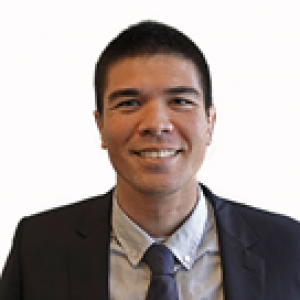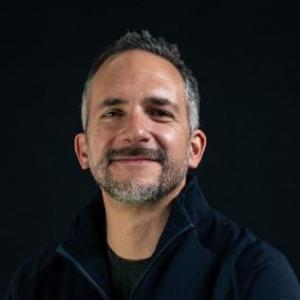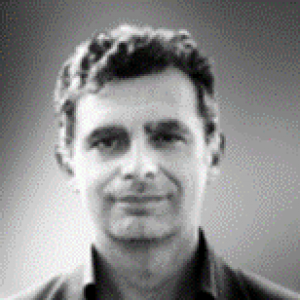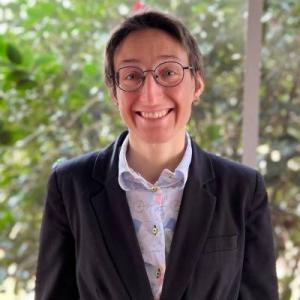Upcoming Seminars
Stay tune!
Past Seminars

Structural Forensics Case Studies
April 03, 2023 - 12:00 pm
Speaker: Dr. Aaron Freidenberg
Structural collapses can occur due to extraordinary events as well as design or construction errors. The presentation will include a case study of a partially collapsed reinforced concrete bridge and a separate case study of a badly damaged house, both of which occurred for reasons that are not immediately obvious. With help from the audience, we’ll present convincing arguments of the root causes of the failures and the parties at fault for those two case studies.

Some Scale Effects in Modeling Soil Behavior
March 15, 2023 - 12:00 pm
Speaker: Andrew Whittle
This lecture will summarize recent progress that addresses three different topics associated with modeling scale effects in soils: The first concerns the classic problem of physical scaling of foundation bearing resistance on sands: Here, advances in elasto-plastic modeling of compression and shear properties (using the MIT-S1 model) can explain the effects of relative density and foundation length scale on the bearing mechanisms, while further work is needed to predict shear banding at large deformations.

Micromechanically Motivated Phase Field Approaches for Modeling Fracture in Materials Undergoing Large Deformations
March 08, 2023 - 12:00 pm
Speaker: Christian Linder
The study of fracture in materials is inevitable in fields like engineering and medicine for optimizing the performance and ensuring the safety of structural and biological systems. Interestingly, their unique underlying micromechanisms characterize the failure in different materials. Brittle fracture is observed in certain materials like glass, ceramics, concrete, and even highly stretchable elastomers, wherein catastrophic failure occurs when the material fracture strength is reached.

A Framework to Assess the Seismic Performance of Multiblock Tower Structures as Gravity Energy Storage Systems
March 06, 2023 - 12:00 pm
Speaker: Professor José E. Andrade
In this talk, we propose a framework for seismic performance assessment of multiblock tower structures designed to store renewable energy. To perform our assessment, we deployed, in tandem, physical and numerical models that were developed using appropriate scaling for Newtonian systems that interact via frictional contact. The approach is novel, breaking away from continuum structures for which Cauchy scaling and continuum mechanics are used to model systems. We show that our discontinuous approach is predictive and consistent.

Turning Disaster Into Knowledge
February 27, 2023 - 12:00 pm
Speaker: Jonathan D. Bray
Advancing hazard-resistant design demands an understanding of what happens when a disaster occurs. Documenting and sharing the key lessons learned from extreme events around the world contributes significantly to advancing research and practice in hazards engineering. Unanticipated observations from major events often define new research directions.
Framework for Extracting Causal Information using Data from Disparate Structural Experiments
February 22, 2023 - 12:00 pm
Speaker: Professor Henry V. Burton
The physical laboratory experiment is a primary tool in advancing our fundamental understanding of structural behavior under seismic loading. For a given project, the results from one or a small set of physical experiments are used to understand how different structural properties or design strategies affect behavior.

Advanced Numerical modelling and Structural Health Monitoring with STKO and OpenSees
February 08, 2023 - 3:00 pm
Speaker: Guido Camata
Nonlinear Finite Element Analyses (NLFEA) can be used to accurately assess the behavior of complex structural details and systems in cases where standards cannot provide reliable verification or computational models

Spatial correlation in ground motion intensities: Measurement, prediction, and seismic risk implications
February 06, 2023 - 12:00 pm
Speaker: Jack W. Baker
The amplitude of ground shaking during an earthquake varies spatially, due to location-to-location differences in wave propagation, attenuation, and source- and site-effects. These variations have important implications for impacts to infrastructure systems and other distributed assets. This presentation will provide an overview of efforts to quantify spatial correlations in amplitudes, via past earthquakes and numerical simulations.

The Role of Emerging Technologies To Realize Smart Infrastructure
February 01, 2023 - 12:00 pm
Speaker: Professor Kenichi Soga
Design, construction, maintenance and upgrading of civil engineering infrastructure requires fresh thinking to minimize use of materials, energy and labor. This can only be achieved by understanding the actual performance of the infrastructure, both during its construction and throughout its design life, through innovative monitoring. Advances in sensor systems and data analytics offer intriguing possibilities to radically alter methods of condition assessment and monitoring of infrastructure.

Multi-scale Computational Geomechanics for Energy and Climate
January 25, 2023 - 12:00 pm
Speaker: Chloé Arson
Landscapes encode the history of the climate. For example, saprolite, the intermediate material between rock and soil, plays a critical role in the evolution of topography, nutrient supply, landslide hazards, and the global carbon cycle. The subsurface also bears resources used for the production of energy and construction materials. It is thus important to assess the response of soils, rocks and other geomaterials to a varying climate and to increasing societal demands.
